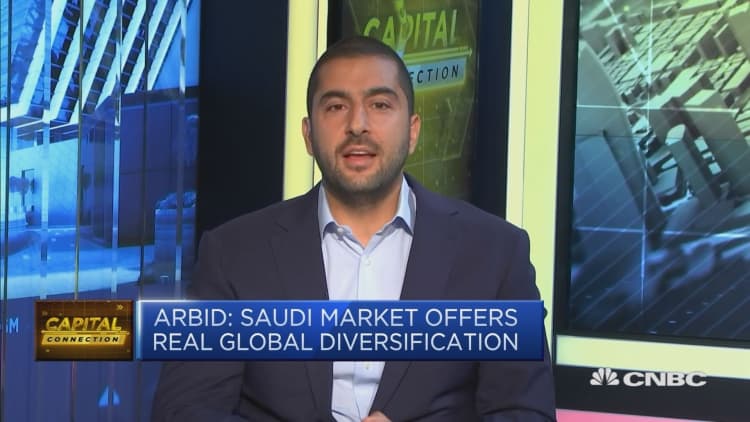
The much-anticipated international listing of Saudi Aramco — the world's largest oil company — is likely to be delayed until 2019, but that decision makes sense given that oil prices are expected to head to $80 per barrel, a private equity investor said.
The state-owned oil firm is expected to list on the Saudi stock exchange in the second half of this year, but an international listing — which was at one point tipped to happen at the same time — is said to have been temporarily shelved.
"Timing is of the essence," Fadi Arbid, founding partner and chief investment officer at Amwal Capital Partners, told CNBC's "Capital Connection" on Tuesday.
"For a company, for which underlying commodity is oil, it would make a lot of sense to wait for that rally. And if you believe that rally is expected to continue, I think you may as well wait," he added.
Oil prices in recent weeks rose on concerns that sanctions by the U.S. on Iran would squeeze supply further. During Asian trading hours on Tuesday, both Brent and West Texas Intermediate crude futures touched their highest since November 2014.
There are still questions in the investing community about which international exchange Saudi Aramco would list on, with exchanges in New York, London and even those in China in the running for a slice of the public share offering.
The company's choice is a "strategic, tactical and maybe political" one, said Arbid. But what's more important is how Saudi Arabia uses the proceeds to support efforts to diversify its economy away from its reliance on oil.
The oil market suffered one of its biggest losses two years ago after an increase in U.S. shale production caused prices to plunge below $30 per barrel. Saudi Arabia, a major oil-producing country, subsequently accelerated plans to grow other parts of its economy.
Those efforts have started to pay off, said Arbid, who noted that around 39 percent of the country's revenue last year came from non-oil sectors. That's about 10 percent more than the year before, he said.
"Saudi is indeed moving away from a hydrocarbon economy to a more efficient, productive economy where employment is the main driver," Arbid said.


